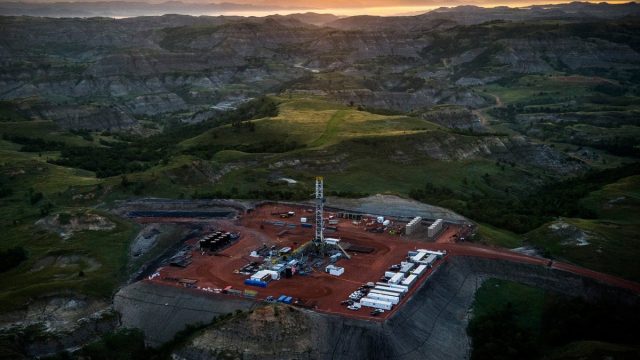Opposition To Reforming North Dakota's Oil Tax May Have State Paying An Ugly Price

The video above is of the floor debate in the state House last session (February of 2013) over HB1234 introduced by Rep. Roscoe Streyle. The bill, among other things, would have eliminated a raft of tax exemptions and lower tax rates triggered by oil prices and replaced them with a relatively flat, three-tiered tax rate.
If statewide oil production went over 800,000 barrels per day the top 11.5 percent tax would be lowered to 11 percent. Between 900,000 and 1,000,000 barrels per day of production the tax rate would be at 10.5 percent. Over 1,000,000 barrels per day (which is where the state has been at for some time now), the tax rate would be a flat 10 percent.
In exchange for this flattening of the tax, the oil industry would agree to do away with a whole bunch of exemptions and the infamous tax triggers which, if oil prices fall under about $52 per barrel for three months, would cut the state’s oil tax in half (see my post all about the triggers and exemptions here).
Streyle’s bill wasn’t the only bill to address the oil tax issue (Senator Dwight Cook also had a good bill), but I thought the video of the floor debate over Streyle’s bill was illuminating in that it seemed prescient of today’s oil price freefall.
“The trigger is a huge issue,” Rep. Streyle said at he time. “Everybody says oil prices will not come back down. Well in 2009 we were a day away from that.”
Streyle was referring to the collapse in oil prices during the Great Recession of 2009. Prices got so low the state was on the cusp of losing about a billion dollars in tax revenues, which obviously would have thrown budgeting for a loop.
“There’s a bunch of risk to the state of North Dakota,” Streyle continued. “We need a lower rate. We need it simplified.
Now the state is in a similar situation. With OPEC so far remaining committed to flooding global markets with oil, and with America’s ban on exporting crude oil creating a glut on the American market, nobody knows how far oil prices will fall.
In the video above you can hear Rep. Kenton Onstad, the Democrat minority leader during that session (re-elected to that position for the coming session), arguing that the oil companies didn’t need the tax break. Except, it really wasn’t a tax break. The industry was agreeing to get rid of a number of tax exemptions, and the lower taxes triggered by oil prices, in exchange for a relatively flat, lower top rate.
“These companies are not here about the tax structure,” Onstad said. “We’ve already given them a corporate tax reduction,” he said referring to the reduction in the corporate income tax rate passed by the Legislature.
But had the reform of the oil tax passed – Streyle’s bill ultimately failed – North Dakota would be in a stronger revenue position today.
Hindsight is 20/20, but I don’t think it can be understated what a perilous position anti-oil impulses have put the state in.




